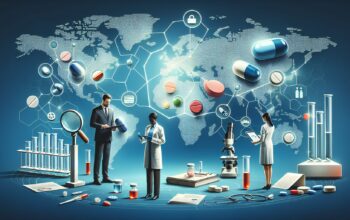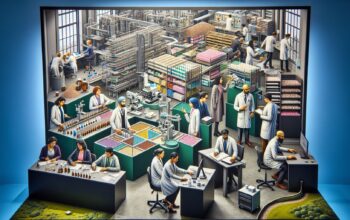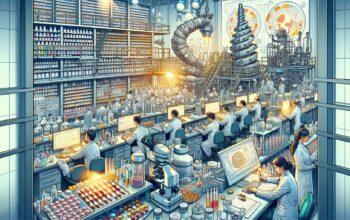
The pharmaceutical industry has played a pivotal role in the advancement of healthcare, saving countless lives with their innovative medicines. From ancient remedies to cutting-edge research, the world of pharmaceuticals has evolved rapidly, catering to the diverse needs of humanity. This blog post explores the intriguing realm of medicines, its intricate processes, and the constant pursuit of breakthroughs for the betterment of global health.
The Birth of Medicines
Since time immemorial, humans have sought remedies for ailments, relying on the healing powers of nature. Ancient civilizations brewed concoctions of plants and herbs, gradually unraveling the medicinal properties hidden in the Earth’s diverse flora. Over time, this knowledge was expanded and refined, paving the way for the creation of the pharmaceutical industry as we know it today.
The Pharmaceutical Process
Developing a medicine is a complex and rigorous process, involving multiple stages and meticulous regulations. It all begins with research and development (R&D), where scientists explore potential new molecules or study existing ones for alternate applications. After promising compounds are identified, preclinical studies on animals are conducted to assess their safety and efficacy.
Once a compound passes the preclinical stage, it moves into clinical trials. These trials are carried out in multiple phases involving human subjects, carefully monitoring the medicine’s effects, dosage, and potential side effects. This rigorous testing process, usually taking several years, ensures that the medicine is safe and effective before it reaches the public.
From Lab to Market
After successfully completing clinical trials, pharmaceutical companies submit extensive data to regulatory authorities for approval. Rigorous evaluation ensures that the medicine meets the necessary standards in terms of quality, safety, and efficacy. Once approved, the medicine is manufactured in large quantities and distributed to healthcare providers, pharmacies, and ultimately, patients.
The complexity of this process is often underestimated, as it involves exhaustive testing, manufacturing, packaging, and quality control to ensure that each dose is safe and effective. Furthermore, regulatory bodies continuously monitor medicine post-approval to ensure ongoing safety.
The Challenges of the Pharmaceutical Industry
The pharmaceutical industry faces several challenges, including the rising costs of research and development, demanding regulations, and the need for constant innovation. Developing a single medicine can take up to 10 years and requires substantial financial investments. Moreover, the industry is heavily regulated to safeguard public health, necessitating compliance with numerous guidelines throughout the entire process.
Additionally, the industry must adapt to new scientific advancements, emerging diseases, and changing healthcare demands. Keeping up with these changes requires significant investments in research, technology, and collaborations. Despite these challenges, the industry remains determined, driven by the desire to provide life-saving treatments and improve global health outcomes.
The Future of Pharmaceuticals
As technology progresses, the pharmaceutical industry continues to evolve. Exciting developments in fields such as genomics, precision medicine, and artificial intelligence are revolutionizing drug discovery and delivery. Tailoring treatments to individual genetic profiles and using AI for drug design are just a few examples of how the future holds immense potential for pharmaceutical innovation.
Moreover, the ongoing COVID-19 pandemic has highlighted the essential role of pharmaceutical companies and medical research in addressing global health emergencies. The urgency to find solutions and develop vaccines has accelerated the traditional pharmaceutical timeline significantly, leading to unprecedented collaborations and breakthroughs.
Conclusion
The pharmaceutical industry stands as a testament to human ingenuity and our relentless pursuit of improving healthcare. From ancient remedies to cutting-edge science, medicines have transformed the world, combating diseases and saving lives. With continued dedication to research, innovation, and global collaboration, the future of pharmaceuticals looks promising, holding the potential to reshape the landscape of healthcare and provide new hope for generations to come.


